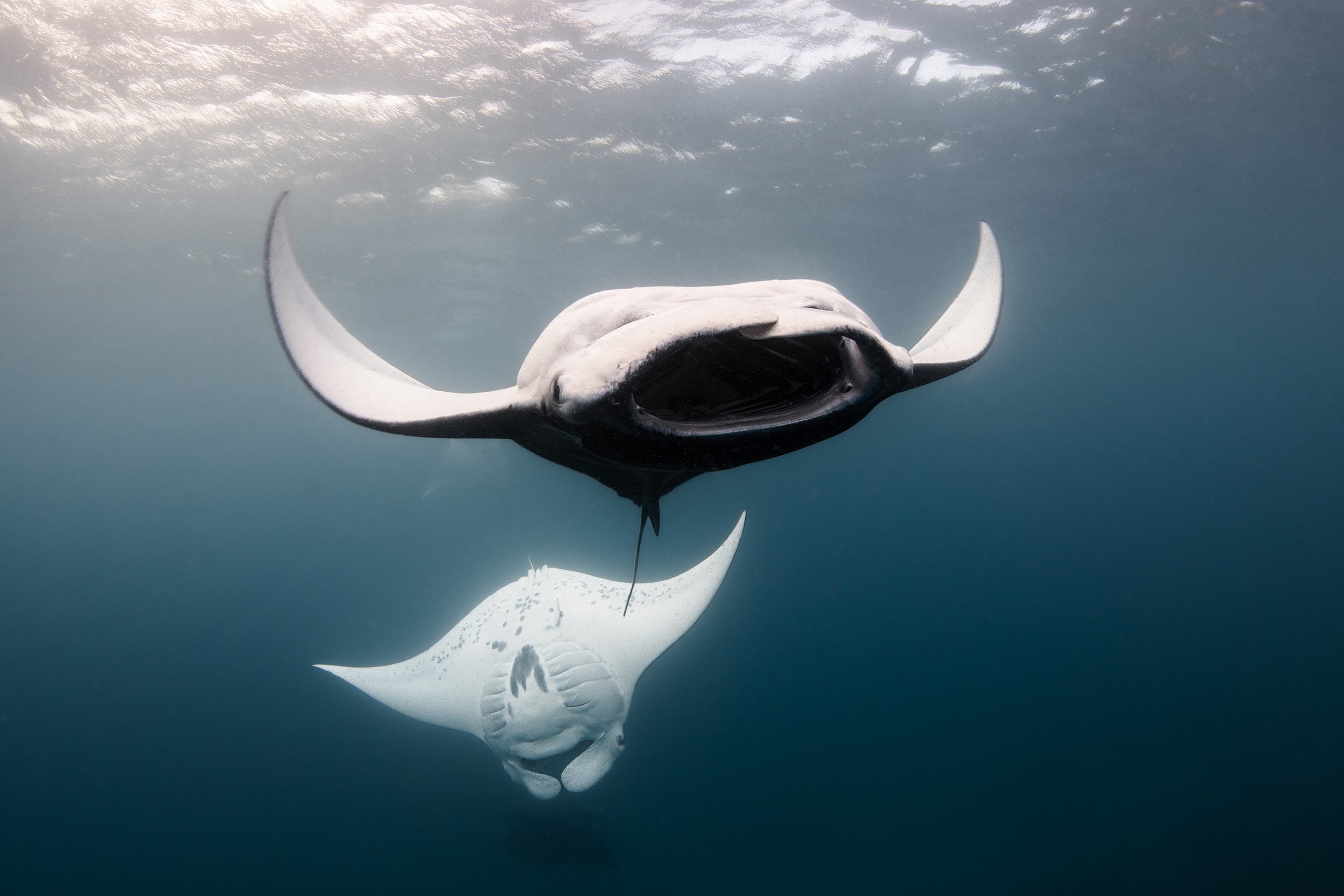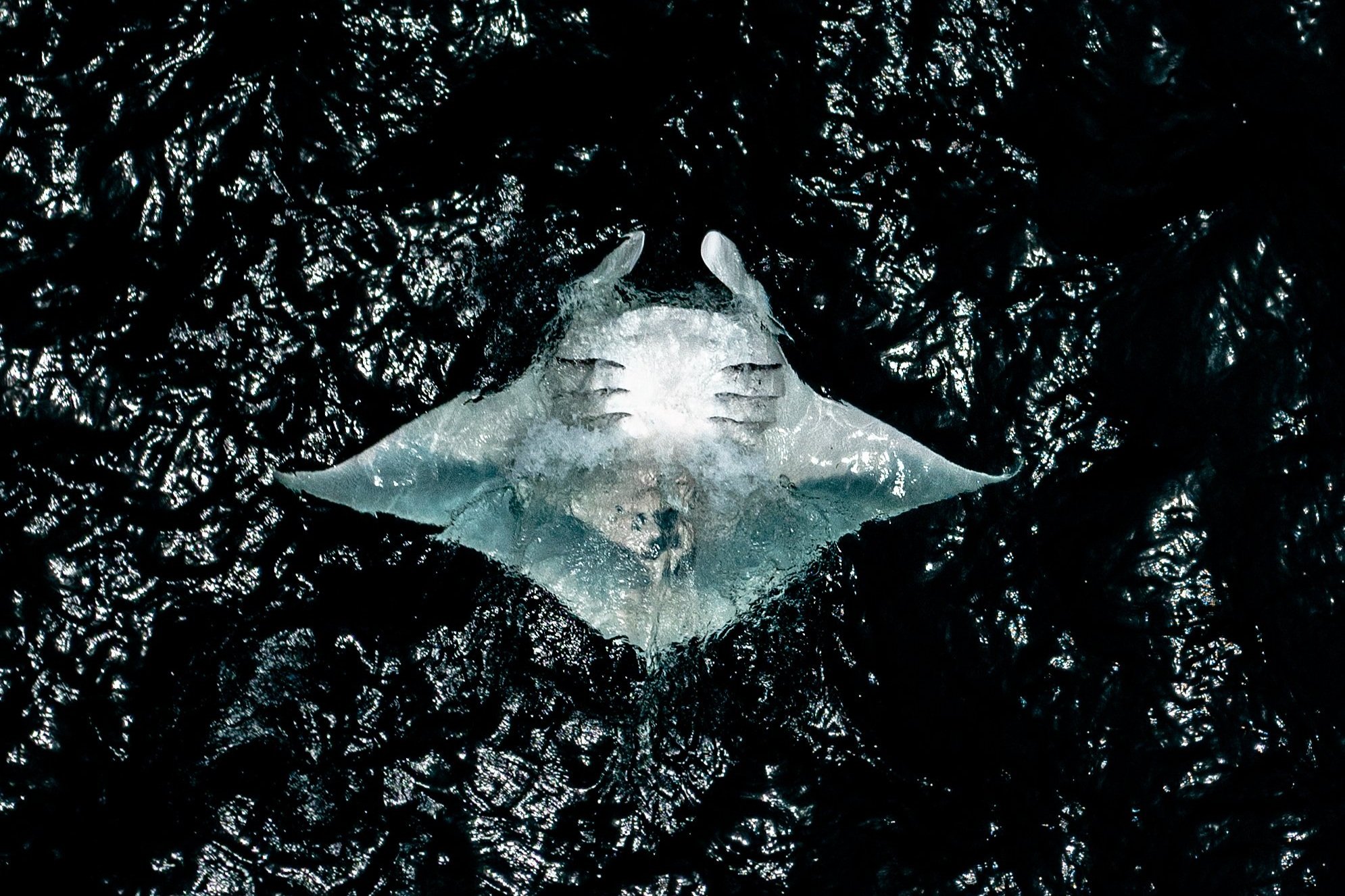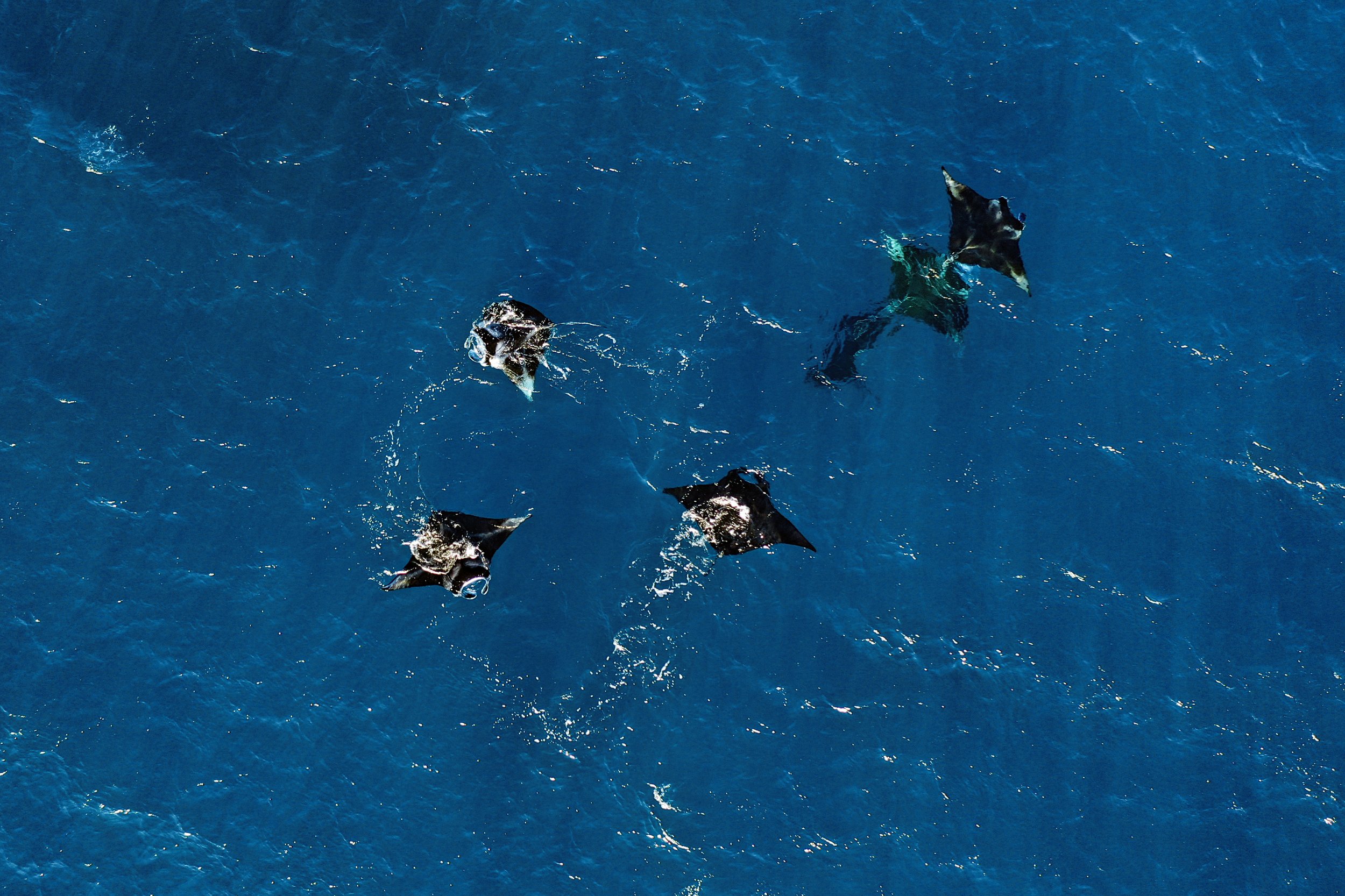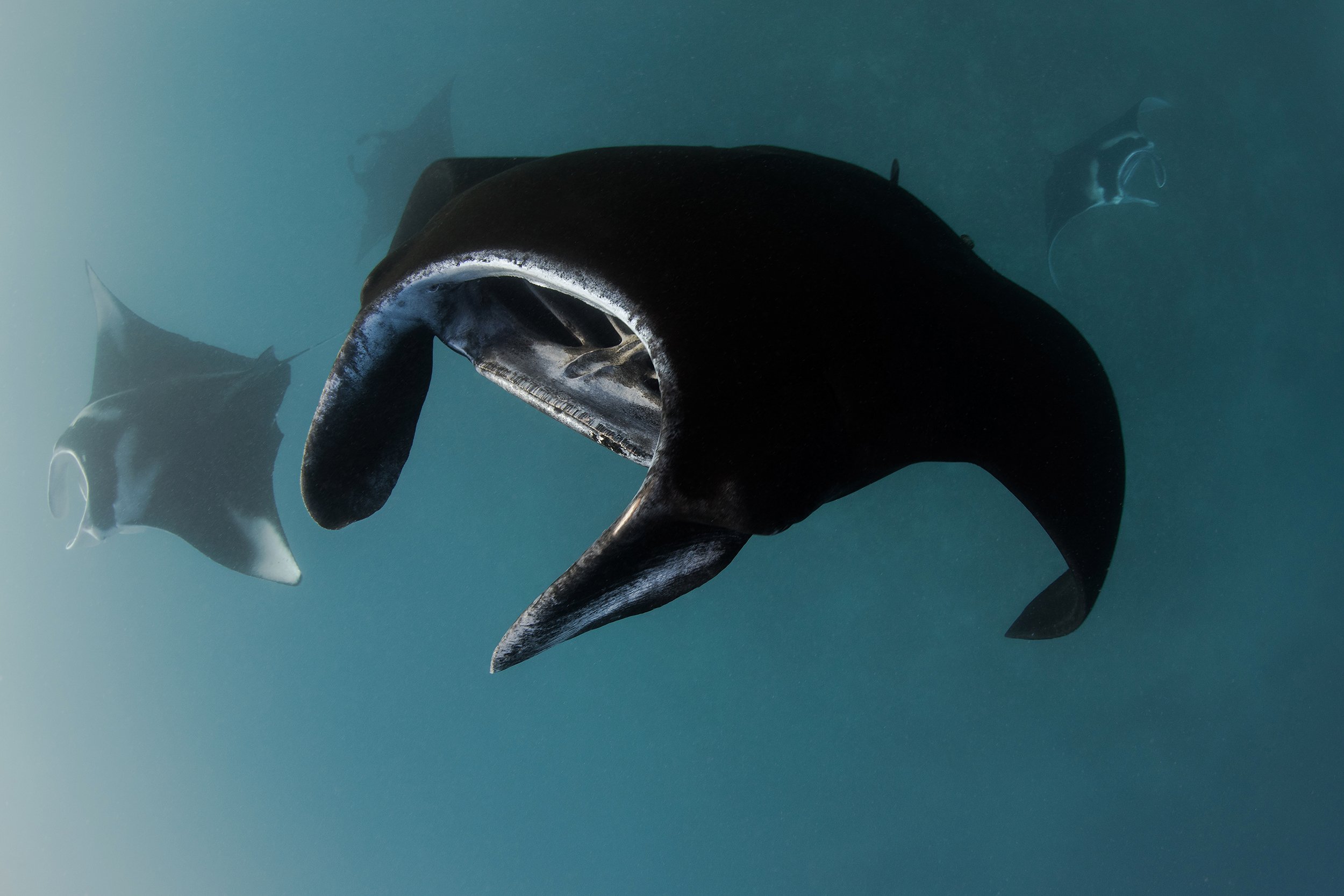
Conserving manta rays and their cousins in The Fiji Islands through Research, Education and Collaboration
Affiliate Project of the Manta Trust
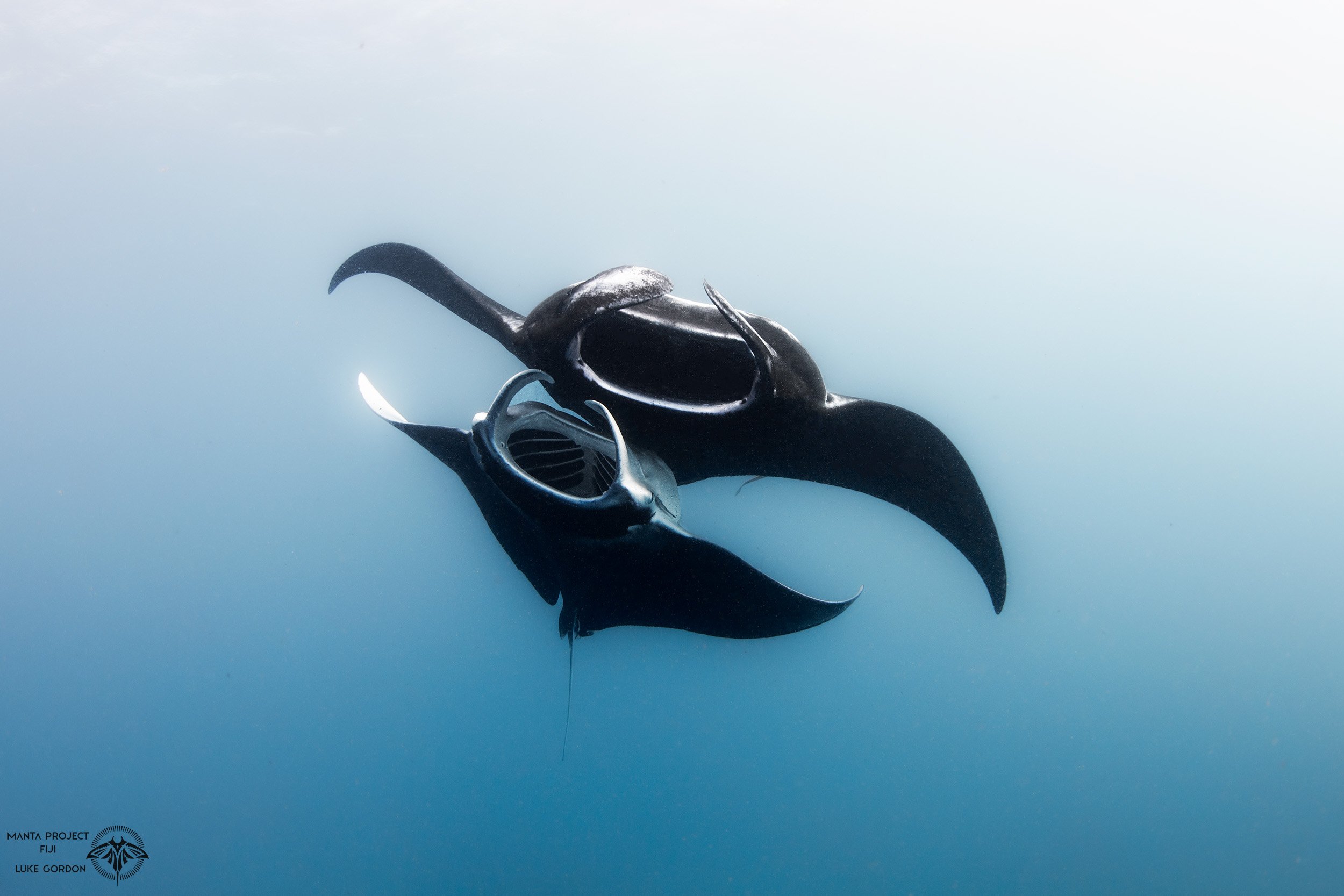
Mobula Rays
Manta and devil rays, known collectively as mobulids (mobula rays), are among the most charismatic creatures in our oceans. With the largest brain of all fish, their intelligence and curiosity make encounters with these animals a truly amazing experience. Despite their popularity with divers and snorkelers, many aspects of their lives remain a mystery. More worryingly, targeted and bycatch fisheries for these animals have had devastating impacts on populations around the world, resulting in all species being listed as Vulnerable or Endangered on the IUCN Red List of Threatened Species.
Little information is known about the manta and devil rays found around South Pacific island nations like Fiji. Manta Project Fiji is dedicated to the conservation of manta rays in the Fiji Islands through research, education and collaboration. We are working to better understand manta ray movement ecology, population dynamics and genetic connectivity within the Fiji Islands, assisting government, local stakeholders and the tourism industry in developing more effective conservation management strategies.
Project Overview
Consisting of over 330 islands in the South Pacific, the Fijian archipelago is home to some of the healthiest reefs in the world. These rich waters bring tourists from around the world to dive and snorkel with the many species of marine life that reside there. In Fiji, manta tourism was valued to be worth US $1.59 million in 2013 and this figure has likely increased in recent years. The introduction of eco-tourism has significant potential to provide sustainable employment for local communities: either directly through manta excursions, or indirectly through a rise in service sector employment. The disadvantage to the increase in tourism is potential overcrowding and manta disturbance at key sites. Enforceable operator guidelines and management is essential to protecting this resource and paving the way for a sustainable future.
Fishing is an important source of revenue in Fiji. Although not specifically targeted in Fijian waters, mobulids (manta & devil rays) have been sighted in areas that are used by long lining vessels from foreign fleets, increasing the chance of bycatch. In addition, no data on mobulid catch rates exist in Fiji. Working in conjunction with Government agencies, NGO’s and resorts across Fiji, Manta Project Fiji is attempting to estimate the size of Fiji’s manta population and the movement of these animals within and around the archipelago, in order to gather baseline data on the current state of the country’s resident population. Research data is being used to inform relevant stakeholders and policy makers so that effective conservation management strategies can be implemented that will safeguard against mobulid bycatch. Ultimately the project hopes to assist the Fijian people in making informed and effective management decisions that protect their manta and devil ray populations, and help to promote responsible tourism as a sustainable revenue stream that benefits both man and manta.
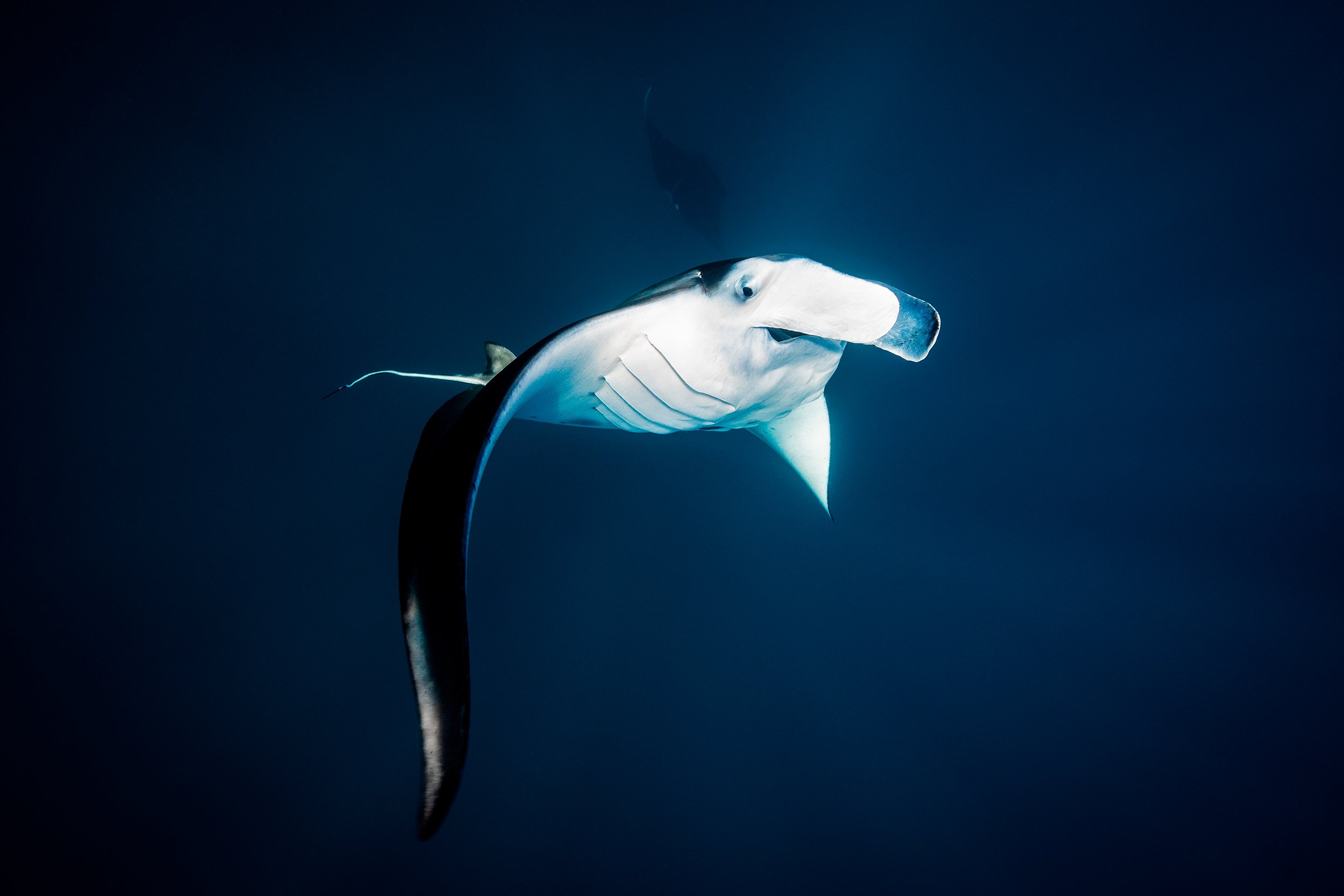
Support Us
Manta Project Fiji is completely funded by donor funding, every donation, big or small makes a huge difference.
Individuals can support us by:
Making a Donation: Please state ‘Donation to Manta Project Fiji’ when donating.
Fundraising for us: Please get in touch if you plan to raise donations for us, whether it be through a sponsored sporting challenge, hosting a bake sale, selling your artwork, or something else entirely, we’d love to hear from you!
Businesses can support us by:
Corporate Giving: Donations demonstrate your business’s dedication to Corporate Social Responsibility and are tax-deductible. Businesses who donate to Manta Project Fiji (via the Manta Trust) will receive a donation certificate.
Corporate Sponsorship: Sponsors provide an annual or regular donation, giving us the stability we need to continue our work. View our Partners & Sponsors to see who we are already working with. Contact us to find out more and we will design a tailored sponsorship package to best benefit your business.
Project Goal
To better understand the population dynamics and movement ecology of manta and devil rays throughout Fiji, in order to support the promotion of sustainable mobulid eco-tourism, the implementation of effective conservation management strategies at critical habitats and the effective regulation of bycatch fisheries in the nation's waters.
Objectives
Identify oceanic & reef manta aggregation sites throughout Fiji, and assess the connectivity between the various sub-populations within Fiji and wider South Pacific waters;
Discover the migration patterns, population structure, ecology and biology of the Fijian manta rays, using photo identification, citizen science, remote cameras, drones, environmental monitoring and local knowledge;
Raise awareness of the conservation needs of mantas in Fiji, and the benefits of sustainable tourism over the unsustainable fishing of these animals;
Assist the Fijian government in establishing effective and sustainable conservation management and legislation, particularly with regards to managing tourism and reducing bycatch;
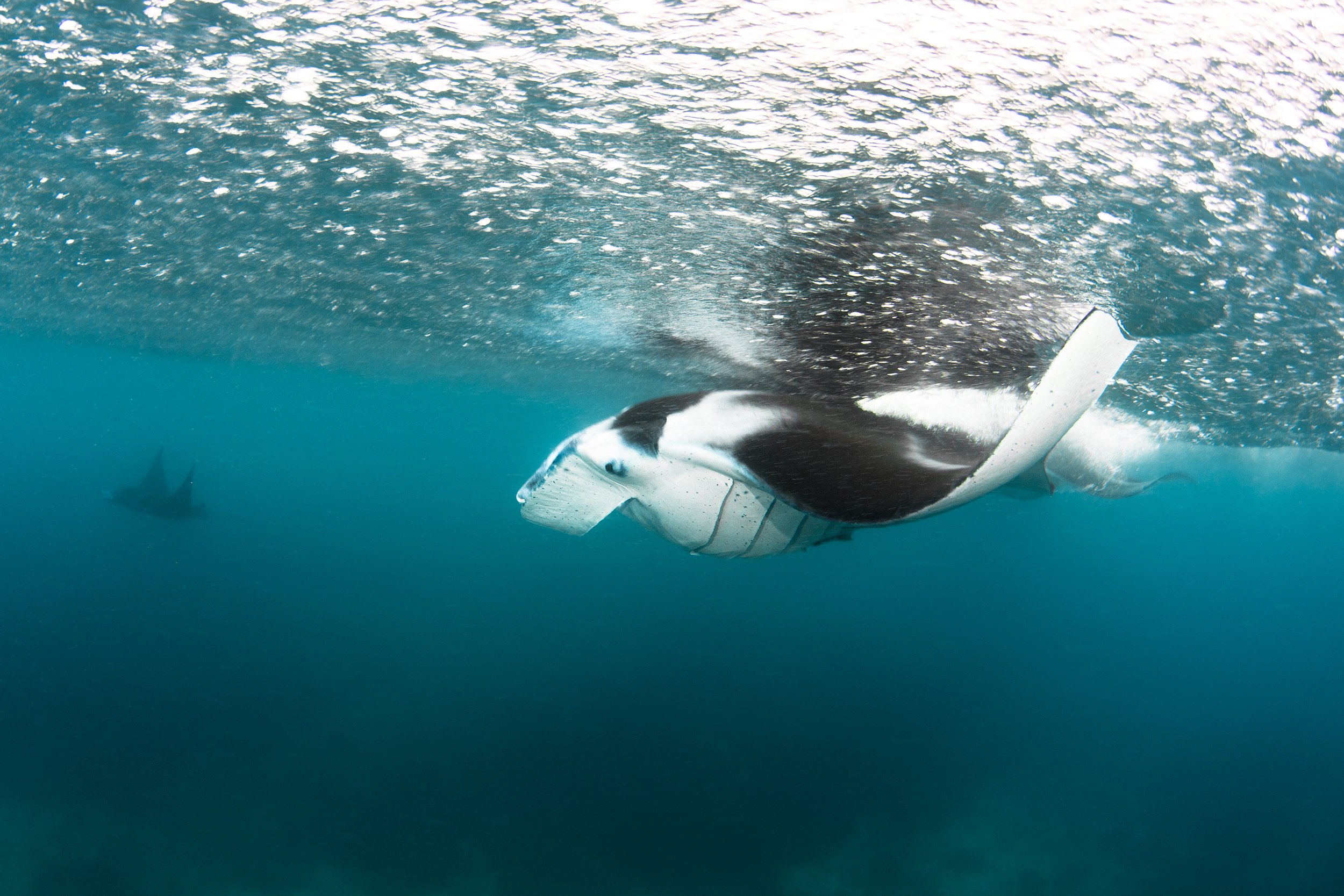
Key Achievements
Established first nationwide reef manta database in Fiji, with a regular study base in the Yasawas Islands (2012)
Supported Manta Trust colleagues in collecting tissue biopsies from Fiji reef mantas, to compare their genetics with other populations, and identify differences between black & chevron morphs (2016)
Submitted National Status of Mobulid Rays in Fiji report to Fijian government (2017)
Confirmed the presence of the Oceanic Manta Ray in the Fiji Islands (2018)
Deployed the first satellite and acoustic tags on reef mantas, gathering the first manta tracking data in Fiji (2019/2020)
Collected two years of valuable manta-tourism interaction data during COVID-19 with a 95% reduction in tourism numbers to manta watching sites
Projects
Reef Manta Rays (Mobula alfredi)
Manta Project Fiji has collected data on Fiji’s reef manta ray population since 2012. The longterm and nationwide data collection is beginning to reveal critical information about the species needed for robust conservation management plans.
Oceanic Manta Rays (Mobula birostris)
It was only in 2018 that the first Oceanic Manta Ray sighting was confirmed in Fiji. With this relatively new project we hope to better understand this illusive ocean giant and how the population is connected throughout the South Pacific.
Sustainable Interactions
Few experiences can top diving or snorkelling with a manta ray. Every year tourists spend an estimated US$140 million to see manta rays in the wild. As a result, tourism can form part of the solution to combating the issue of global manta fisheries, however these interactions need to be sustainable.
Lau Seascape Initiative
The Lau Archipelago, Fiji’s most remote island group, is consistently ranked among the highest priorities for conservation. Currently we know very little about how manta rays use this habitat and the size of the population there. Working with Conservation International we hope to fill in critical knowledge gaps surrounding manta’s in the region.
If you are interested in donating to or sponsoring a specific project then we would love to hear from you. Please get in touch
Project Team
Project Leader
Luke Gordon
Project Researcher
Kadavu Island
Project Researcher
Kadavu Island
Viviana Taubera
Project Researcher
Kadavu Island
Lily Taoi
Project Researcher
Yasawa Islands
Rob Mcfarlane
Project Researcher
Yasawa Islands
Isabella Sorovakatini
Partners & Sponsors
Private Sector
Barefoot Manta Resort
Since the initiation of the project in 2012, the project has been based at Barefoot Manta Island resort in the Yasawas (Drawaqa Island). The main reef manta aggregation site is just off the island, where strong currents funnel zooplankton into the shallow channel between Drawaqa and the largest island in the Yasawas, Naviti.
We are extremely grateful to The Barefoot Collection for their support, without which we would not be able to conduct our work in Fiji.
Kokomo Private Island Fiji
Kokomo Private Island Fiji is one of Manta Project Fiji's most supportive partners. Fully committed to the environment and developing sustainable, marine-related guest activities, Kokomo Private Island Fiji has contributed to the project's research since 2017. Kokomo Private Island Fiji funded the first acoustic tagging research in 2019 with an array of receivers to collect data over the next 3-5 years on mantas movement ecology throughout the country, this incredibly exciting research has the potential to pave the way for the design of more robust management strategies to help conserve Fiji's mantas.
With a resident marine biology team on site, Kokomo Private Island Fiji are dedicated to developing sustainable tourism practices and driving research on Fiji's manta population.
Wakaya Club & Spa
Wakaya Club and Spa is a recent project partner, with Wakaya and Manta Project Fiji working together to help better understand the population of manta rays throughout the Lomaiviti Island group in the east of the country since 2019. Promoting guest manta excursions and sustainable interactions allows data to be gathered effectively on their near pristine coral reef habitat, which is a gazetted MPA. In future years we hope to implement various research techniques to gain a further insight into the population demographics and movement ecology of mantas in this unique part of the country.
NGO’s & Foundations
Conservation International
People need nature — and for over 30 years, Conservation International has worked to protect it. Through cutting-edge science, innovative policy and global reach, Conservation International work to protect the nature that we rely on for food, fresh water and livelihoods.
Reef Explorer Fiji
Reef Explorer Fiji Limited is a research and development business enterprise undertaken to support local resource conservation efforts (particularly marine) by developing, promoting, and conducting related research and educational programs.
Blue Penguin Smith Family Office
The Blue Penguin Smith Family Office manages both the Investment Portfolio for the Smith Family Trusts as well as the foundation set up by the family to support Ocean Conservation and a Sustainable World.
Follow Our Journey
Contact us.
luke.gordon@mantatrust.org
(+679) 9480196




